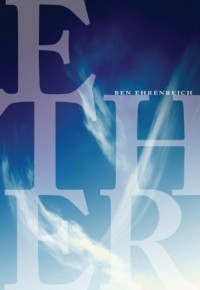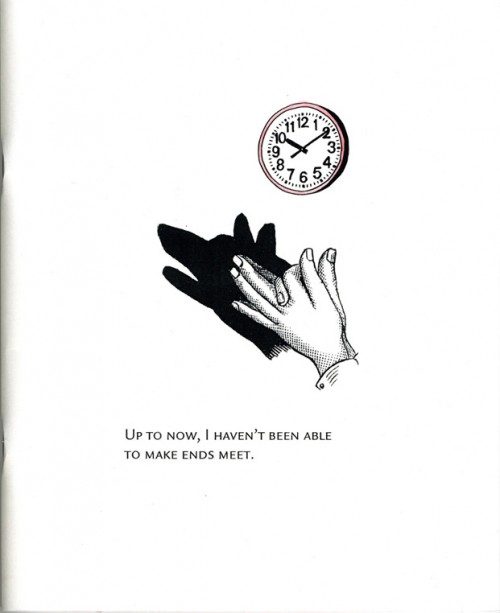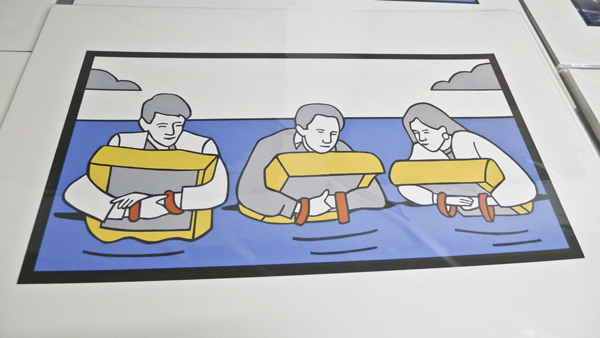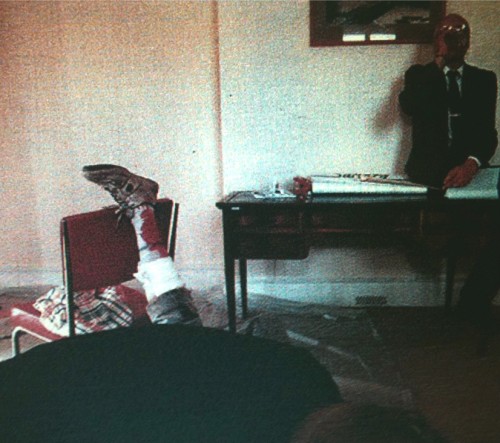Lessons I’ve Learned Starting a Micropress
I started a micropress, Tiny Hardcore Press, and it has been an awesome but very challenging adventure. The best part is getting to work with writers I respect to publish awesome books that practically fit in the palm of your hand. There is no worst part but every single day I learn something new. Most of these lessons have risen from my own ignorance. Who just decides to start a press? A press is a small business. I should have done more research. I had put out two books already via PANK, but that’s not really research. My first mistake was diving into the deep end when I should have been in the kiddie pool with my floaties. I offer these observations in no particular order.
1. No matter how much money you think it’s going to cost, running a press will cost more, like, at least twice as much more and then a little more on top of that. Sure, you can run a press on the cheap, but it is pretty hard to avoid spending a lot of money.
Ether
 Ether
Ether
by Ben Ehrenreich
City Lights, 2011
144 pages / $13.95 buy from City Lights
Rating: 8.0
Towards the beginning of Ben Ehrenreich’s sophomore novel Ether, we are introduced to an unnamed bag man who carries around his worldly possessions in three bags, which he drags with him wherever he shuffles. The bag man lives in a smoky, charred, polluted world (probably Los Angeles), one where a great calamity appears to have recently occurred, and one where an even greater calamity looms. The world is filled with bands of hostile kids who seem to have outgrown childish pranks and are instead on to kidnapping and torture. The world is also filled with video cameras, some active, some not … all menacing. After a series of unusual setbacks, the bag man eventually falls in with a homophobic priest, two crippled twins in wheelchairs, and several other sad-sack characters, and goes on a search for a vaguely Beast-like figure in a white suit.
If you want Apocalyptic plotlines, Ehrenreich certainly delivers.
January 26th, 2012 / 12:00 pm
Sometimes I feel like Poetry wants to kill me. Not in a malicious way, but in an ambivalent way. Like it wants to siphon my life off, little by little, until there’s none left. Sorry, I guess that’s not a question.
14 times i googled the girl with the captain at the time of the event
11. Lucy Corin goes:
So when people call books bad for being masturbatory what they are saying I think is that they hate the culture/community/ personality type they associate with where that creative product comes from. They don’t want to hang out with those people, or those people make them feel bad about themselves or the world in a ‘what has become of us’ sort of way. Because if you LIKE someone, you probably LIKE watching them masturbate, after all.
2. Turgenev Hunter’s Sketches online. Oh hell yes. Grab me some black bread and vodka and I’m holing up like an elevator.
2. Sci fi Aimee Bender story online, you Star Cheeks.
3. And Stanley Fish goes,
The essence of all this is contained in an aphorism I formulated in 1964 as I watched my colleagues at Berkeley turn from abasing themselves before deans and boards of trustees to abasing themselves before students. Here is the aphorism: Academics like to eat shit, and in a pinch they don’t care whose shit they eat. Of course, had I known enough at the time, I could have saved myself the trouble and simply quoted Freud. For the masochist, Freud explains, “it is the suffering itself that matters; whether the sentence is cast by a loved one or by an indifferent person is of no importance … but the true masochist always holds out his cheek whenever he sees a chance of receiving a blow.” Whatever else they are, academics are resourceful, and when they set their minds to it, there are no limits to the varieties of pain they can inflict on one another and on themselves.
14. Word is AWP registration is sold out. 9300 registrants! First thought: Damn, that’s a lot of colorful skinny eyeglasses. Latte, anyone? OMG aging writer with a ponytail. (Let it go, Sean! Only if you let go your scarf matching your Converse sneakers.) Next thought: Time to put Book Fair pass on eBay.
A guide for those who would be typeset
Today at Slate, Farhad Manjoo does editors and designers everywhere the service of insisting on the plain and simple truth: putting two spaces after a period (or a colon, or a question mark, or an exclamation point, or etc.) is not just unnecessary, it is wrong, and furthermore a pain in the ass for everyone who has to handle your work when you’re done with it. It wasn’t long ago that it didn’t really matter how many spaces you used in a manuscript. The typesetter would have to retype the entire thing character by character, and it was very easy for them to remember not to key two spaces simply because the manuscript contained them. However, things have changed. We no longer re-type anything. We insert documents into other documents. We copy and paste. While it has become increasingly common for writers to work with an awareness of what typesetters do (because they are more and more often themselves doing this work, though perhaps more often in a WordPress “Add New” page or a Dreamweaver window than InDesign or Quark Xpress), I am still frequently amazed and disheartened by the ways in which they choose to format their manuscripts. Let’s talk about these things a little.
First, we need to define the problem more clearly. Basically, our goal should be to create the cleanest, most format-neutral manuscripts possible, with clear indications of the work’s intended appearance. What you create is not what will be published, but a source document. The goal is therefore not to simulate a published page, but to make a useable document that serves that purpose. There are four areas where writers most frequently get things wrong: the aforementioned spaces between sentences, indenting paragraphs, paragraphing generally, and page breaks. READ MORE >
Flamingo Rampant! Gender Independent Kids Books
The amazing writer S. Bear Bergman has started a Kickstarter to fund a really exciting, much needed project: Flamingo Rampant–Gender Independent Kids Books.
Why?
Kids’ ability to see themselves in books available to them is an incredibly valuable thing. Any parent, teacher, librarian, or caregiver will tell you that kids love books that reflect their daily experience. Kids with dogs like it when the kid in the book has a dog; kids with non-nuclear family structures cherish books in which families like theirs are shown.
Knowing this – or instinctively grasping it, as most of us do – makes it easy to see the value of children’s books with trans characters to trans or gender-independent kids (or kids with transgender family members).
More details here! This is definitely a project worth throwing a few dollars at.
Music Roundup: Martin Seay, Annie Gosfield, The Smiths
1.
My favorite thing I read on the internet last year was Martin Seay’s epic essay on Ke$ha, the Beastie Boys, and Beyoncé:
Although “TiK ToK” contains stupidity—in much the same way that a Twinkie contains high fructose corn syrup—it is anything but a stupid song. Unlike three decades’ worth of kegstanding fratboys, Sebert misses the point of “Fight for Your Right” deliberately: she interprets the Beasties’ (limited and unsuccessful) attempts at irony and connotive suggestion as amounting to no more than inefficiency, and as such she excises them. […]
It’s erudite, funny, and very, very correct.
2.
Blake, this is for you. (Play it LOUD!)
3.
I wrote some posts at Big Other about overlooked Smiths songs:
- Part 1: “The Smiths”
- Part 2: “Meat Is Murder”
- Part 3: “Strangeways, Here We Come”
- Part 4: “Hatful of Hollow”
- Part 5: miscellaneous uncollected songs
- Part 6: a chart explaining where you can find every Smiths song
January 25th, 2012 / 1:51 pm
Antennae 12
The most recent issue of Antennae 12 is out, and will be the journal’s last issue. Antennae has consistently been one of my favorite literary journals out there, thanks to Jesse Seldess for his fabulous editorial work. I’ve been introduced to the work of many new writers in its pages over the years and am really glad for its existence.

antennae 12 (the last issue)
January 2012
$10
Lee Gough
Andrew Zawacki
Cupola Bobber
Ray DiPalma
Kristen Gleason
Thomas Hummel & Brett Fletcher Lauer
Joshua Ware
Andrew Durbin
Matha Oatis
Janice Lee & Laura Vena
Cover by
Thomas Hummel & Brett Fletcher Lauer
“Captcha”
–from Gabrielle de Vietri




